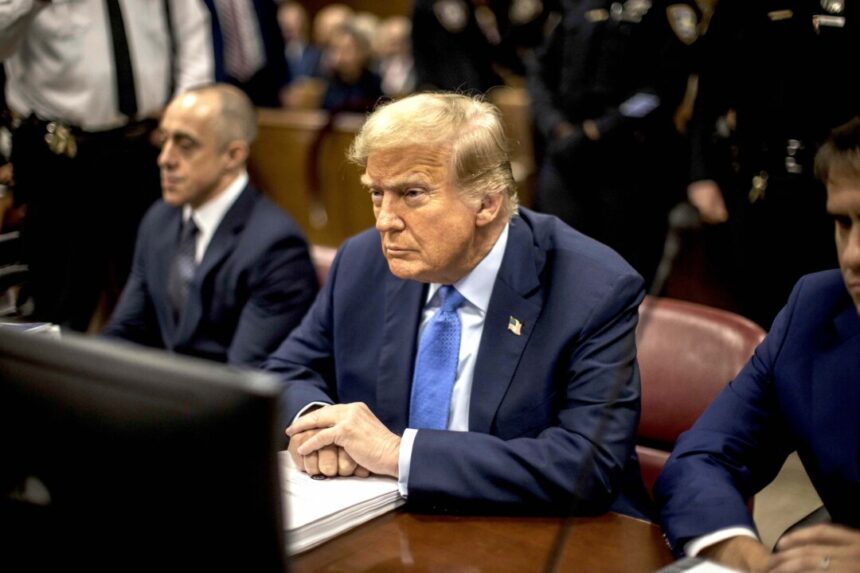Shu noted that the Supreme Court’s eventual opinion could disrupt lower court proceedings and potentially lead to another appeal that reaches the Supreme Court once again. The Supreme Court’s indication on April 25 suggested that they would issue a narrow ruling to refine the scope of presidential immunity, leaving the details of former President Donald Trump’s other legal battles to be handled by lower courts. This decision would likely delay President Trump’s Washington case and force the lower court to determine how to apply the Supreme Court’s new definition of immunity. The justices are expected to distinguish between official and unofficial acts while ruling that presidents enjoy some immunity for official acts, but the specificity of their instructions remains unclear. The impact of the Supreme Court’s decision on President Trump’s other ongoing criminal cases, such as the Georgia election case, remains uncertain. The opinion is expected to have long-lasting effects on various levels of the justice system. President Trump may potentially appeal a conviction in New York based on the Supreme Court’s decision, but the application of immunity to such cases remains uncertain. The eventual fallout of the post-election legal battles involving President Trump and others named in the indictments, including Mark Meadows, remains to be seen. Mark Meadows submitted an amicus brief to the Supreme Court asserting that the Supremacy Clause of the Constitution granted him immunity from charges in Fulton County due to his official duties as Chief of Staff. The outcome of the court’s decision on criminal immunity for advisers remains uncertain.
Meadows emphasized the importance of preserving the immunity from state prosecution provided by the Supremacy Clause for subordinate federal officials in his brief.
President Trump’s federal case in Florida involving classified documents was originally set to begin on May 20 but is now uncertain. The Supreme Court is expected to issue an opinion in June, potentially influencing legal arguments in President Trump’s defense.
In a similar manner to the New York case, the outcome of the Supreme Court’s decision on immunity could impact President Trump’s potential conviction in Florida and Georgia. President Trump has sought to dismiss certain charges in Florida based on presidential immunity, awaiting a decision from Judge Aileen Cannon.
The possibility of a president overriding state and federal prosecutions through self-pardoning was raised during oral arguments. The question of a president’s self-pardoning authority has not been officially addressed by the Department of Justice.
If President Trump’s trials extend beyond a hypothetical inauguration, the use of self-pardoning authority could be called into question. The Department of Justice has not taken a definitive stance on the issue of self-pardoning.
Source link






